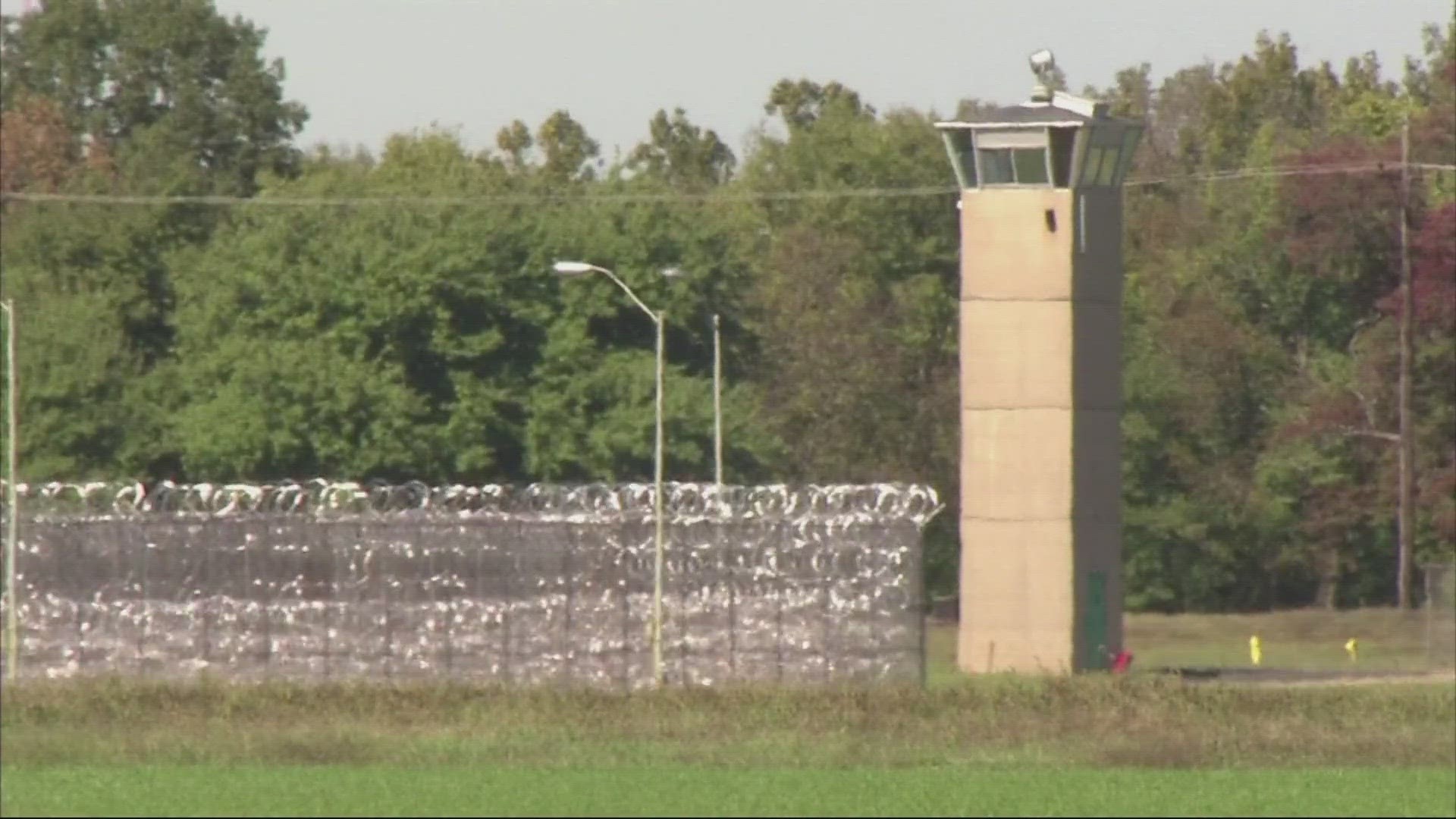INDIANAPOLIS — The punishment for killing a law enforcement officer is a heavy thought weighing on the minds of many this past year.
Last summer, Elwood Police Officer Noah Shahnavaz and Richmond Police Officer Seara Burton were shot just 11 days apart. Both the Madison and Wayne County prosecutors filed for the death penalty.
Earlier this month, Marion County Deputy John Durm was allegedly killed by Orlando Mitchell while transporting him near the Community Justice Campus. Days later, Marion County Prosecutor Ryan Mears announced plans to seek the death penalty in that case.
"A very difficult announcement and one nobody takes lightly, but given the circumstances, in particular what took place on Monday, we felt that the following course of action was appropriate," Mears said.
In all these cases, the trials, sentencing and appeals will take years. The wheels of justice in these cases move slowly — slower still, since Indiana hasn't executed anyone since 2009.
Gov. Eric Holcomb and the Indiana Department of Correction has told 13News, "Indiana does not currently have an inventory of lethal injection drugs and continues to explore ways to obtain them."
Robin Mahar, executive director of the Death Penalty Information Center, said demand in using capital punishment as a sentence has been dropping around the country.
"Over the past several years, we've seen a tremendous decrease in the number of executions and in the number of new death sentences. That's been a trend that's been consistent for probably the last ten years. We have been below 30 executions and 15 new death sentences every year for many years now," Mahar said.
New legislation has been filed in the U.S. Senate that seeks to abolish the federal death penalty and require those death row inmates be resentenced.
Mahar said that wouldn't impact death row inmates for state crimes, including the eight awaiting execution in Indiana.
"The largest number of people who are sentenced to death in the United States are on state death rows," Mahar said. "There are only 41 people on federal death row, and that's in Terre Haute, Indiana."
Over the years, Mahar said public perception around using the death penalty has been shifting.
"Attitudes in the United States have been changing," Mahar said. "We've certainly seen that in public opinion polls, we've seen that in the number of death sentences that juries are returning when they are asked to decide whether someone lives or dies. I think people are concerned about the tremendous costs of the death penalty, the length of time before an execution takes place and think that those funds could be used for different purposes in their communities."
Bringing death penalty cases not only takes far more time, they're far more expensive. But with the most severe penalty available in our criminal justice system now, Mahar said that's necessary to ensure defendants get a fair trial.

